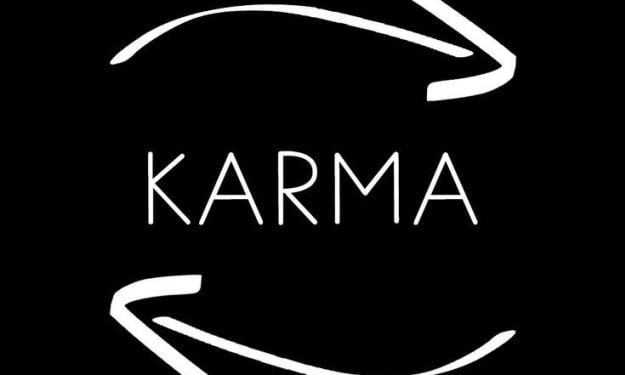The Truth About Anxiety
An Article on Anxiety

I don't have a job yet. I get scared and panic at job interviews. I'm afraid of screwing up. This is because of my anxiety disorder.
I almost had a job interview. I backed out at the last minute. I'm afraid of commitment. This is because of my anxiety disorder.
I'm 18-years-old. I don't know how to drive yet. I don't even have my permit yet. I'm afraid of driving. This is because of my anxiety disorder.
I haven't been out of a relationship for an extended period of time for years. I'm afraid of being alone. This is because of my anxiety disorder.
I haven't chased after my dreams. I'm afraid of being rejected. I'm afraid of not being supported. This is because of my anxiety disorder.
I haven't gotten to where I want to be in life yet. I'm afraid of failure. This is because of my anxiety disorder.
Why do we stigmatize anxiety? It's like we just turn a blind eye to those who struggle with anxiety. And then it's like when someone without a diagnosed case of an anxiety disorder says that they're anxious, we're all there for them and trying to help them feel better. But when someone with a diagnosed case of an anxiety disorder says they're anxious, we just ignore them or say that they're just overreacting. Sure, there is no way to tell if someone has anxiety for sure or not. So how are we supposed to know the difference? The answer is simple; we don't. We're not all psychiatrists. And we should already treat everyone with dignity and respect, regardless of whether or not we know if they have a diagnosis of an anxiety disorder or not. Why don't we then? The answer to that is simple as well; there is so much stigma around anxiety, it's not even funny. Sure, we get people who laugh at individuals who are having an anxiety attack, but it isn't even remotely or truly funny.
So what is an anxiety disorder? Anxiety disorders are more than temporary worry or fear. For people with anxiety disorders, the anxiety does not go away and could even possibly get worse over time. The feelings associated with anxiety disorders can interfere with day-to-day activities such as job performance, schoolwork, and even personal relationships.
There are more than one kind of anxiety disorder. Five of the most common Anxiety disorders are Generalized Anxiety Disorder, Obsessive-Compulsive Disorder, Panic Disorder, Post-Traumatic Stress Disorder, Social Phobia (also known as Social Anxiety Disorder)
So what are the differences of the three anxiety disorders listed?
Generalized Anxiety Disorder is also called GAD, and is persistent and excessive worry about a lot of different things, often at once. People with Generalized Anxiety Disorder may expect disaster and may be very concerned about money, health, family, work, and other things. People diagnosed with Generalized Anxiety Disorder find it difficult to keep their worry under control. They may worry more than what seems rational, about real events or may even expect the worst even when there is no real reason to be concerned. This is the anxiety disorder that I have.
Obsessive-Compulsive Disorder is also called OCD, and is a common, chronic and a long-lasting disorder in which a person has thoughts that are uncontrollable and reoccuring, which are called obsessions, and behaviors which are called compulsions that he or she feels the need to repeat over and over again.
Panic Disorder is sudden attacks of fear that last for several minutes or longer. It is also repeated panic attacks. A panic attack is a fear of disaster or of losing control of themselves even when there is no actual danger. People often have a strong physical reaction when they have a panic attack. It sometimes may feel like having a heart attack. Panic attacks can happen at any time, and a person with panic disorder dread the thought of having another panic attack and worry about the possibility of having another attack.
Post-Traumatic Stress Disorder, also called PTSD, is a disorder that can develop in a person who has experienced a shocking, scary, or dangerous event that happened in their life. It is completely natural to feel scared during and after a traumatic event that happened in someone's life. There are many changes in the body to help defend and protect against danger or to try and avoid it. This is known as the “fight-or-flight” response. It is a typical reaction meant to protect someone from harm. Almost everyone will experience different reactions after a traumatic event. However, most people recover from the first symptoms naturally. Those who continualy have problems may be diagnosed with PTSD. A person who has PTSD may feel stressed or scared even when they are not in any danger at all.
Social Phobia, which is also known as Social Anxiety Disorder, is when a person experiences irrational fears when in public. Some of these fears include but are not limited to, being humiliated, judged, and rejected. A person feels symptoms of fear and anxiety in certain or all social situations. Some of these include but are not limited to, needing to meet new people, dating, having a job interview, needing to answer a question in class, or needing to talk to a cashier in a store. Doing day-to-day things in front of people causes anxiety and fear. Some of these include, but are not limited to, eating and/or drinking in front of others and using the public restroom. I had this at one point, but I have gotten over it.
Now I'm going to speak from my personal experience with anxiety. I was diagnosed with anxiety when I was 13-years-old and in eighth grade. I didn't know what anxiety was at the time. I thought it was just feeling scared all the time. But boy was I wrong. Anxiety is a lot more than just that. I had my first panic attack a few months after being diagnosed with anxiety. I was in gym class. We had been running a lot that day. I started getting out of breath. Then I could barely breathe at all. My chest started hurting so bad it felt like an elephant was sitting on it. I was lightheaded. My throat felt like it was closed up it hurt so bad. I thought it was an asthma attack. But it was an anxiety attack. Although, it could have been a combination of both, seeing as how I have untreated asthma. All the same, it was not a pleasant experience.
To those who don't have a diagnosis of a general anxiety disorder; imagine if that was you. How would you have felt? Having your throat feel like it was closed up because it hurt so bad, being lightheaded, your chest hurting so bad that it felt like an elephant was sitting on it, and barely being able to breathe at all, and all at once.
Now, when I have anxiety attacks, I have shallow breathing, lightheadedness, I shake really bad, I tense up a lot, I get really hot, and sometimes I even pass out from being so anxious. And whenever I do pass out from an anxiety attack, I often feel so weak, I can barely move and I usually forget about what happened to make me so anxious or what I thought about that made me so anxious.
The symptoms of an anxiety attack are not defined because everyone with anxiety have different symptoms when they have an anxiety attack. Some of the most common ones are, sudden and overwhelming fear, sweating, shaking, shallow breathing, feeling like you are choking, chest pain, nausea, dizziness/lightheadedness, numbness or tingling sensation in the limbs or entire body, and chills or hot flashes.
Depending on the person, different situations can cause them to go into an anxiety attack. So please, think before you speak, and speak kindly.
I am speaking out for the people suffering in silence; you are not alone. Do not let those fools who tell you you're overreacting get you down. They're wrong! Don't let people's ignorance get you down. They're just undereduacated about anxiety. And to those who put people down for their anxiety, I hope one day you'll learn that anxiety is not something to be made fun of.
Remember, different situations can cause different people to go into an anxiety attack. So please, think before you speak, and speak kindly.
About the Creator
Serena Fix
Hello! I've been writing ever since I learned how to. I enjoy it a lot, and thought I would give this a try.






Comments
There are no comments for this story
Be the first to respond and start the conversation.